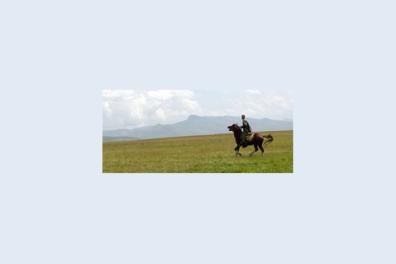Linguistic Theories and Data Seminar 2023-2024

Grammar of Baga Pukur, an Atlantic language of Guinea
by Neige Rochant, Université Sorbonne Nouvelle - LACITO / LLACAN, CNRS
This work is a grammatical description of the two existing varieties of Pukur, an endangered Atlantic language spoken by fewer than a thousand people on the coast of Guinea. It aims to be informed by typology so as to be usable by typologists and comparatists. This language had hardly ever been described or documented before. The grammar follows a form-to-function descriptive approach and encompasses all levels of description, from phonology to complex sentences to informational structure. It is based on empirical data collected by the author during eight and a half months of fieldwork between 2019 and 2023. The corpus of spontaneous texts, comprising six and a half hours of transcribed and translated recordings, encompasses various genres such as procedural texts, mythological and ancestor narratives, historical narratives, descriptions of rituals and cultural practices, hortatory discourse, a few conversations and a tale. This corpus, which served as the basis for the grammatical description, was also supplemented by elicited data.
After an introduction providing sociolinguistic and methodological background, information on genetic classification and a typological overview of the language, the grammar is structured into nine chapters: Phonology; Parts of speech; Nominal deriflection system; Verbal inflection system; The nominal group; The adpositional group and the phrasal verb group; The simple proposition; Complex sentences; Informational structure.
The hypothesis of incomplete acquisition in the light of data from Romanian as a heritage language
by Alexandru Mardale, Inalco - SeDyL, CNRS
Speakers of a so-called heritage language (or heritage language, angl. heritage language, Cummins 2005, Montrul 2016) are bilinguals, simultaneous or sequential. They speak this language with their family, as well as a second language in the community in which they live. According to the incomplete acquisition hypothesis (Montrul 2008), knowledge of the heritage language is not "complete", due to the reduced input to which these speakers are exposed. In this study, we set out to assess the extent to which this hypothesis holds true among speakers of Romanian as a heritage language in France. Our data come from a sociolinguistic survey and a corpus of 45 "little frog" stories. Participants belonging to 2 age groups (1 group of children aged 3 to 12 and 1 group of adults aged 18 to 30) live in France and are all speakers of heritage Romanian and French. The preliminary results of our research, based on the use of the phenomenon of differential object marking, show that the hypothesis of incomplete acquisition does not hold for Romanian.
The parts of speech in the Paicî language (Kanaky-New Caledonia)
by Antoine Corral, Master SDL, Inalco & Paris Sorbonne Nouvelle
Friday, April 5, 2024 at 2:30pm. More information
Study of drehu variation (New Caledonia)
by Salé Ele-Hmaea, Master 2 SDL, Inalco
on Friday, April 5, 2024, at 2:30pm. More information
Drehu is a language spoken on the island of Lifou, one of the four Loyalty Islands of New Caledonia. It is one of the twenty-eight vernacular languages in the Caledonian repertoire. Drehu is also the most widely spoken Kanak language in New Caledonia, with some 16,000 speakers. In this presentation, we'll be looking at how today's native speakers speak and pronounce their language. The aim of our study is first to investigate phonetic changes in Drehu speakers, and the factors behind these changes. Subsequently, we will see a brief presentation of the methodology of the dialectal study of Drehu on and off the island of Lifou.
Nominalization in Vietnamese
by Ngoc Anh Nguyen, Master 2 SDL, Inalco
Friday, April 5, 2024 at 2:30pm. More information
Nominalization is a very common phenomenon in all languages of the world. The aim of our research is to provide a detailed description of the nominalization phenomenon in the Vietnamese language by applying Tesnière's translation theory. The first part deals with general approaches to the phenomenon of nominalization, dividing it into two main categories: derivational nominalization and syntactic nominalization. In the second part of our work, we focus on the phenomenon of nominalization in the Vietnamese language. Different approaches are explored. Based on the specific characteristics of Vietnamese, we study this phenomenon from two main angles: marked nominalization and unmarked nominalization. Marked nominalization refers to Tesnière's theory of translation to identify nominalizers. As for unmarked nominalization, we have applied Danh Thanh Do-Hurinville's theory of transcategoriality to determine to which parts of speech the words belong.